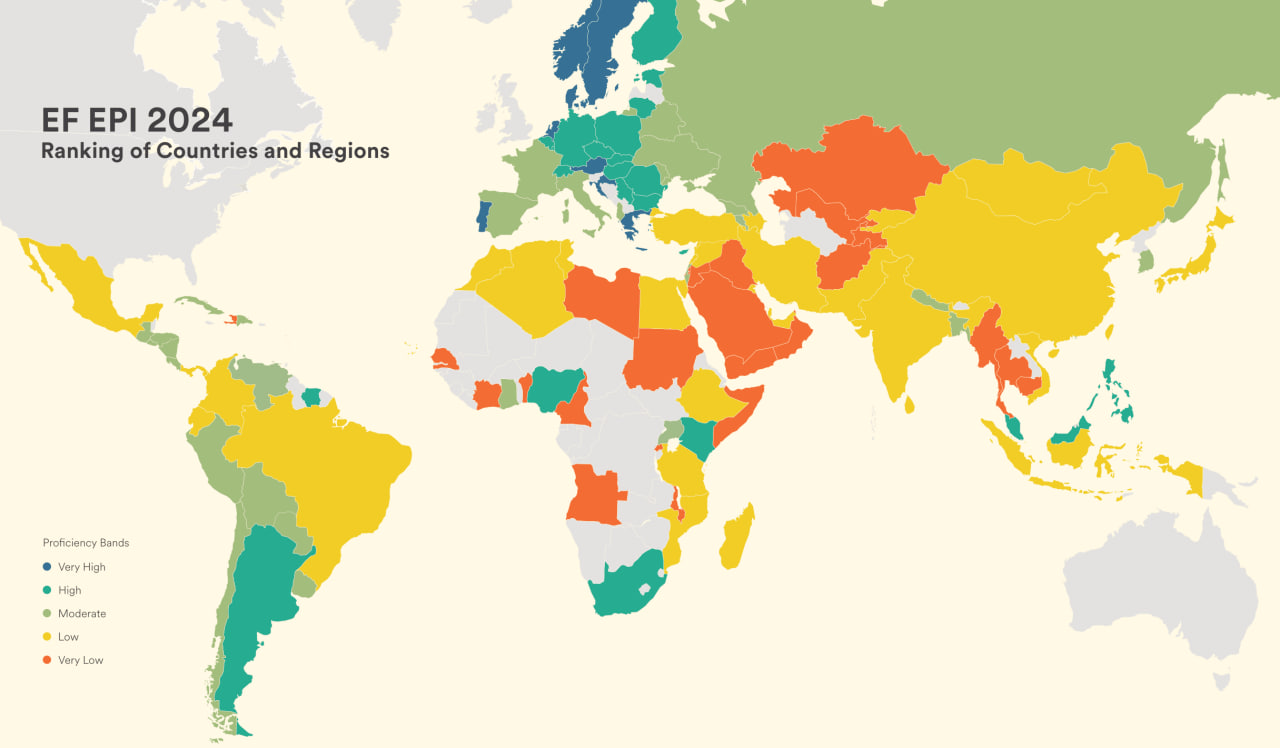Uzbekistan drops to 98th spot in global English proficiency ranking
Uzbekistan has dropped to 98th place out of 114 countries in the 2024 EF English Proficiency Index, signaling a continued low proficiency in English among its population. This marks a decline from last year’s rank of 93rd among 113 countries, as reported by EF Education First. The country’s average score decreased slightly, from 442 to 439, which corresponds to the B1 level on the Common European Framework of Reference (CEFR) scale.

EF English Proficiency Index 2024
According to data provided by EF’s CIS division, the highest English proficiency scores in Uzbekistan were recorded in Andijan city (461), followed by Tashkent city (457), and Fergana city (456). The analysis also showed that Tashkent region led with a three-year average score of 463. Meanwhile, lower English proficiency scores were observed in Jizzakh (384), Kashkadarya (404), and Khorezm (405) regions.
An interesting trend emerged among age groups: while English proficiency among students aged 21-25 improved, scores among 18-20-year-olds showed a decline. Dmitry Fedorov, EF’s CIS director, highlighted that this reversal is unusual, as the younger group has traditionally scored higher than older age brackets. This year, gender differences in proficiency also disappeared, marking the second time in Uzbekistan’s recorded history that men and women achieved equal scores in English proficiency.
Uzbekistan’s performance in the index, which it joined in 2018, has shown limited progress over recent years. The EF English Proficiency Index, which evaluates English language skills based on the EF Standard English Test (EF SET), draws on data from over 2.1 million participants worldwide. For 2024, the test sample included 7,339 participants from Uzbekistan aged 18 and older.
This year, the index found a global trend of declining English proficiency in 60% of the countries assessed. Despite a slight drop worldwide, regions such as the Middle East and Africa showed improvements, while English proficiency in other areas decreased. The report suggests that while demand for English remains high, educational and private sectors in some countries may be shifting their focus away from language skills.
EF Education First, founded in Sweden in 1965, operates globally, offering English language education and study-abroad programs through a network of schools and offices in 55 countries.
Related News

14:55 / 13.11.2024
Russia considers ban on migrant children without Russian language skills from schools

14:56 / 09.11.2024
Uzbekistan honors young scholars and their mentors for Olympiad success

14:33 / 09.11.2024
Uzbekistan sees surge in international students choosing medical studies

17:32 / 08.11.2024



